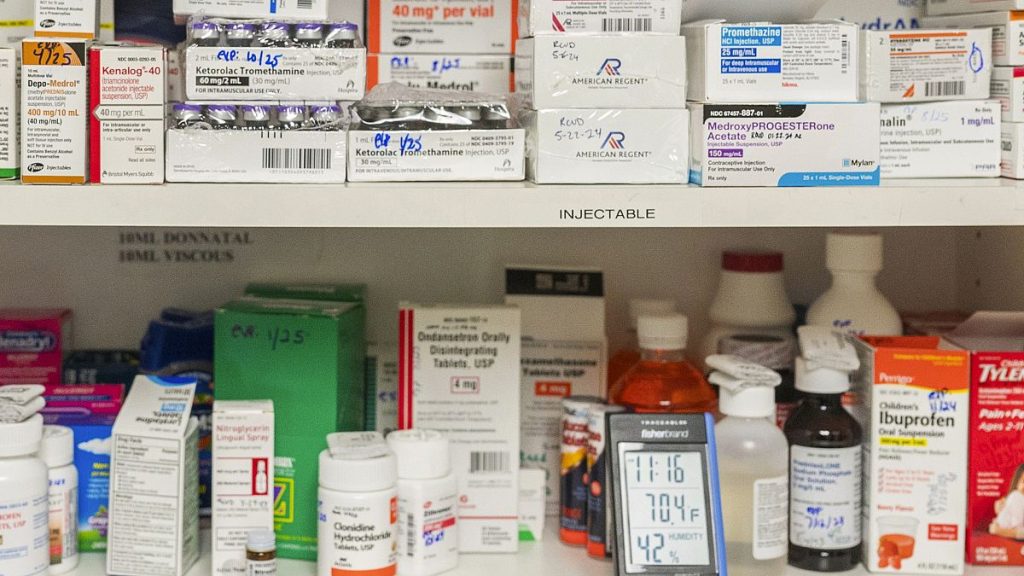The European Commission’s proposed Critical Medicines Act, aimed at addressing the persistent shortages of essential medications within the EU, faces an uncertain timeline for its unveiling. Despite new Health Commissioner Olivér Várhelyi’s ambitious pledge to introduce the legislation within his first 100 days in office, a confluence of procedural hurdles and time constraints casts doubt on whether this target can be met. While the Act enjoys high-level political support from Commission President Ursula von der Leyen, navigating the EU’s established regulatory framework presents a significant challenge.
A key obstacle lies in the mandatory impact assessment required for all new legislative proposals under the EU’s Better Regulation principles. This assessment, which evaluates the environmental, social, and economic ramifications of a proposal, is a time-consuming process. The absence of the Critical Medicines Act from the Commission’s list of upcoming initiatives until March 5, coupled with unfinished internal preparatory work, suggests that completing the assessment within Várhelyi’s self-imposed deadline may be unrealistic. This delay potentially jeopardizes the subsequent inter-service consultation process, where various Commission departments scrutinize the proposal before its formal presentation. Further complicating matters, Poland, currently holding the EU Council presidency, has expressed a lack of clarity regarding the Act’s prioritization within the EU’s legislative agenda.
The urgency of addressing medicine shortages within the EU is undeniable. The COVID-19 pandemic exposed vulnerabilities in the pharmaceutical supply chain, highlighting the precarious dependence on limited manufacturers and source countries for crucial medications like antibiotics, insulin, and painkillers. Várhelyi himself has emphasized the ongoing nature of these challenges, characterizing the situation as a “clear emergency.” However, the Commission must reconcile the need for rapid action with the established legal and procedural requirements for introducing new legislation. Bypassing the impact assessment entirely, though technically possible in emergencies, is a rare maneuver and requires a subsequent analysis within three months of the proposal’s publication. This approach has been utilized in exceptional circumstances like the COVID-19 crisis and recent farmers’ protests, but it represents a less desirable path for regular legislative processes.
The Critical Medicines Alliance, a consultative body comprising 250 stakeholders from across the healthcare sector, emerges as a potential catalyst for expediting the Act’s development. Tasked with analyzing supply chain weaknesses and proposing solutions, the Alliance’s forthcoming recommendations could partially fulfill the requirements of the Better Regulation framework by providing on-the-ground evidence from a diverse range of experts. The Commission is exploring whether the Alliance’s final strategic report, complemented by a separate legislative gap study due in early 2025, could serve as a suitable substitute for a full-fledged impact assessment. This strategy offers a potential compromise, balancing the imperative for timely action with the need for a robust evidence base to inform policy decisions.
The success of this approach hinges on ongoing internal discussions within the Commission, particularly with the legal services, to ensure compliance with the Better Regulation principles. While the Alliance’s contribution offers a promising avenue, it remains uncertain whether it will fully satisfy the stringent procedural requirements. The timeline remains tight, and the Commission faces a delicate balancing act between expediting the process and ensuring the robustness of the proposed legislation.
Ultimately, the fate of the Critical Medicines Act rests on navigating these complex procedural and political considerations. Várhelyi’s ambitious 100-day target, while reflecting the urgency of addressing medicine shortages, faces significant challenges. The Commission must carefully consider all available options to ensure that the final legislation is both timely and effectively addresses the vulnerabilities exposed by recent crises. The convergence of the Alliance’s findings, the legislative gap study, and ongoing internal deliberations within the Commission will determine whether this crucial legislative endeavor can adhere to Várhelyi’s ambitious timeline or require a more protracted timeframe for development and implementation.














